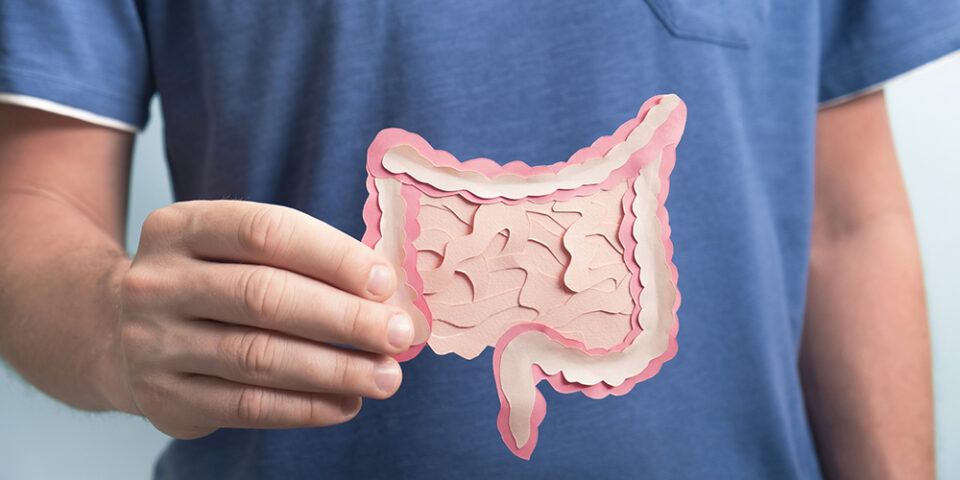What is the gut microbiome?
Anyone keeping up with health news, or who deals with issues like Crohn’s disease, inflammatory bowel disease (IBS), or who has noticed recent food trends, has likely seen a shift in the way we talk about gut health, including a renewed focus on something called the gut microbiome.
What is the gut microbiome, and how does it affect our health and daily life? Andre Eaddy, MD, gastroenterologist, explained the basics of the microbiome and what steps you can take to improve your own microbiome for improved overall health.
What is a gut microbiome?
“Think about the environment all around us, the bacteria that is just everywhere in the world at all times, good and bad,” said Dr. Eaddy. “The microbiome is the internal bacterial environment in our gastrointestinal tract, and it is just as complex and interconnected as the environment outside of our body.”
From the moment we are born, there are bacteria living not just around us, but within us. The gut microbiome is all of the bacteria located within our GI tract, including the small intestine, the colon, your stomach and other digestion-related organs.
Does everyone have the same kind of microbiome?
“Everyone has an immense amount of bacteria within our GI tract at any given moment,” said Dr. Eaddy. “If you were to lay your gastrointestinal tract out flat, the surface area would be the size of a tennis court. Now consider that bacteria are microscopic, not even visible to the naked eye. The amount of bacteria within our GI tract alone is more than ten times the number of cells in our bodies.”
However, no two people are entirely identical, and that goes for our microbiome, too.
The type and number of bacteria we have within us are affected by where we live, our diet and activity level, what water we drink, our current age or even what people we personally come into contact with. These differences begin right from the start of our lives – infants born by C-section were found to have a different gut microbiome than those born vaginally, for example.
What other factors can influence your microbiome?
“One interesting discovery has been the influence of our national diet, not just individual food choices,” said Dr. Eaddy. “People living in countries like the United States have a higher chance of developing conditions like gluten allergies, Type 1 and Type 2 diabetes, IBS, Crohn’s disease and even certain cancers than those who live in nations with very different basic national diets.”
In fact, babies born in the United States who then live in other nations don’t show a higher rate of these diseases, proving that the changes that can negatively impact our microbiome are likely cultural rather than genetic.
Some cultural factors that can negatively influence or impact your gut microbiome include:
- The overuse of antibiotics for minor or viral infections where antibiotics are either unneeded or simply ineffective
- NSAIDs like ibuprofen or naproxen
- Usage of prescription medications that damage the intestinal tract when used over time on a regular basis
- Growth hormones and antibiotic overuse in livestock being raised for human consumption (beef, chicken, etc.)
- A diet high in sugar or fat
All of these can either decrease the number of ‘good’ bacteria hard at work within your GI tract, cause inflammation or increase oxidative stress on our bodies. Oxidative stress is a little like getting a sunburn. While it may seem mild, the damage it causes can accumulate and lead to much more serious problems down the road that negatively impact your health.
What can I do to improve my microbiome?
“One quick answer? Consume more probiotics and antioxidants,” said Dr. Eaddy. “Antioxidants protect your cells, and they protect the good bacteria that probiotics will encourage to strengthen and grow.”
A diverse, healthy diet with lots of leafy green vegetables like spinach or kale, an emphasis on lean meats from animals not fed antibiotics or growth hormones, and sticking to a healthy balance of carbohydrates, protein, fruit, veggies and fats all help to keep your digestive system working well, which means your gut bacteria have an easier time, too.
Probiotics are available in supplement form from health food stores or even some grocery stores, but the most expensive supplement isn’t necessarily the most effective. Don’t worry about breaking the bank to help your microbiome – instead, focus on taking in probiotics through simple changes to your diet.
Fermented foods are most likely to have probiotics. Have some plain yogurt with blueberries, almond slices, and honey for breakfast. Toss spicy, slightly sour kimchi into a stir-fry. Add pickle slices to your hamburger or chop up pickles into an egg salad. All of these can introduce probiotics into your system and make for a healthier GI tract.
A healthy lifestyle can help create a healthy microbiome
“Alongside that healthy diet, I also recommend regular exercise and staying within healthy weight limits for your size, shape and activity level,” said Dr. Eaddy.
Every aspect of our bodies is designed to influence other functions, too. Keeping a healthy microbiome within your gastrointestinal tract not only helps with your digestive function but also helps to create a better overall quality of life.
Find a doctor
Whether you’re looking for a primary care physician or need to see a specialist, we’re here to help with experienced, compassionate care near you.
Find a Doctor

